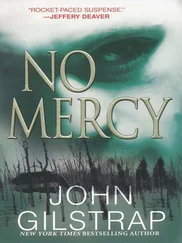Andrea Dworkin - Mercy
Здесь есть возможность читать онлайн «Andrea Dworkin - Mercy» весь текст электронной книги совершенно бесплатно (целиком полную версию без сокращений). В некоторых случаях можно слушать аудио, скачать через торрент в формате fb2 и присутствует краткое содержание. Жанр: Старинная литература, на английском языке. Описание произведения, (предисловие) а так же отзывы посетителей доступны на портале библиотеки ЛибКат.
- Название:Mercy
- Автор:
- Жанр:
- Год:неизвестен
- ISBN:нет данных
- Рейтинг книги:3 / 5. Голосов: 1
-
Избранное:Добавить в избранное
- Отзывы:
-
Ваша оценка:
- 60
- 1
- 2
- 3
- 4
- 5
Mercy: краткое содержание, описание и аннотация
Предлагаем к чтению аннотацию, описание, краткое содержание или предисловие (зависит от того, что написал сам автор книги «Mercy»). Если вы не нашли необходимую информацию о книге — напишите в комментариях, мы постараемся отыскать её.
Mercy — читать онлайн бесплатно полную книгу (весь текст) целиком
Ниже представлен текст книги, разбитый по страницам. Система сохранения места последней прочитанной страницы, позволяет с удобством читать онлайн бесплатно книгу «Mercy», без необходимости каждый раз заново искать на чём Вы остановились. Поставьте закладку, и сможете в любой момент перейти на страницу, на которой закончили чтение.
Интервал:
Закладка:
all the time and never had enough o f you and the cement was a
great, gray plain stretching out forever and you could wander
on it forever, free, with signs that they had been there and
promises they would come back, abrasions, burns, thin,
exquisite cuts; not locked up. Under them, covered, buried,
pinned still— the dark ramming into you— you could hear a
heartbeat. And somewhere there were ones who could sing.
Whisper; touch everywhere; sing.


T H R E E
In January 1965
(Age 18)
M y name is Andrea. It means manhood or courage, from the
ancient Greek. I found this in Paul Tillich, although I like
Martin Buber better because I believe in pure love, I-Thou,
love without boundaries or categories or conditions or
making someone less than you are; not treating people like
they are foreign or lower or things, I-It. Prejudice is I-It and
hate is I-It and treating people like dirt is I-It. In Europe only
boys are named Andrea, Andre, Andreus, but m y mother
didn’t know that and so I got named Andrea because she
thought it was pretty. Philosophy comes from Europe but
poetry comes from America too. I was born down the street
from Walt Whitman’s house, on M ickle Street in Cam den,
N ew Jersey, in 1946, after the bomb. I’m not sad but I wish
everyone didn’t have to die. Everyone will burn in a split
second, even less, they w o n ’t even know it but I bet it will hurt
forever; and then there will be nothing, forever. I can’t stand it
because it could be any second at all, just even this second now
or the next one, but I try not to think about it. I fought it for
a while, when I had hope and when I loved everyone, I-Thou,
not I-It, and I suffered to think they would die. When I was
fourteen I refused to face the wall during a bomb drill. T hey
would ring a bell and we all had to file out o f class, in a line, and
stand four or five deep against a wall in the hall and you had to
put your hands behind your head and your elbows over your
ears and it hurt to keep your arms like that until they decided


the bomb wasn’t coming this time. I thought it was stupid so I
wouldn’t do it. I said I wanted to see it coming if it was going
to kill me. I really did want to see it. O f course no one would
see it coming, it was too fast, but I wanted to see something, I
wanted to know something, I wanted to know that this was it
and I was dying. It would just be a tiny flash o f a second, so
small you couldn’t even imagine it, but I wanted it whatever it
was like. I wanted my whole life to go through m y brain or to
feel m yself dying or whatever it was. I didn’t want to be facing
a wall pretending tomorrow was coming. I said it outraged
m y human dignity to have my elbows over m y ears and be
facing a wall and just waiting like an asshole when I was going
to die; but they didn’t think fourteen-year-olds had any
human dignity and you weren’t allowed to say asshole even
the minute before the bomb came. They punished me or
disciplined me or whatever it is they think they’re doing when
they threaten you all the time. The bomb was coming but I
had to stay after school. I was supposed to be frightened o f
staying after school instead o f the bomb or more than the
bomb. Adults are so awful. Their faces get all pulled and tight
and mean and they want to hit you but the law says they can’t
so they make you miserable for as long as they can and they
call your parents to say you are bad and they try to get your
parents to hit you because it’s legal and to punish you some
more. You ask them why you have to cover your ears with
your elbows and they tell you it is so your ear drums w on ’t get
hurt from the noise. They consult each other in whispers and
this is the answer they come up with. I said I thought m y ear
drums would probably burn with the rest o f me so I got
punished more. I kept waiting to see them wink or smile or
laugh or something even just among themselves even though
it w ouldn’t be nice to show they knew it was crap but they
acted serious like they meant it. They kept telling you that you
were supposed to respect them but you would have had to take


stupid pills. I kept thinking about what it meant that this was
m y life and I was going to die and I thought I could say asshole
i f I wanted and face whatever w ay I wanted and I didn’t
understand w hy I couldn’t take a walk in the fucking spring air
if I wanted but I knew i f I tried they would hurt me by making
me into a juvenile delinquent which was a trick they had if you
did things they didn’t like. I kept reading Buber and tried to
say I-Thou but they were I-It material no matter how hard I
tried. I thought maybe he had never encountered anything like
them where he lived. I kept writing papers for English on
Buber’s philosophy so I could keep in touch with I-Thou even
though I was surrounded by I-It. I tried to reason it out but I
couldn’t. I mean, they were going to die too and all they could
think o f was keeping you in line and stopping you from
whispering and making you stare at a wall. I kept thinking
they were ghosts already, just dead already. Sometimes I
thought that was the answer— adults were dead people in
bodies giving stupid orders. They thought I was fresh but it
was nothing like what I felt inside. Outside I was calm. Inside I
kept screaming in m y brain: are you alive, are you zombies,
the bomb is coming, assholes. Why do we have to stand in
line? W hy aren’t we allowed to talk? Can I kiss Paul S. now?
Before I die; fast; one time? In your last fucking minute on
earth can’t you do one fucking human thing like do something
or say something or believe something or show something or
cry or laugh or teach us how to fight the Goddamn Russians or
anything, anything , and not just make us stand here and be
quiet like assholes? I wanted to scream and in m y brain I
screamed, it was a real voice screaming like something so loud
it could make your head explode but I was too smart to scream
in real life so I asked quietly and intelligently w hy we couldn’t
talk and they said we might miss important instructions. I
mean: important instructions ; do you grasp it? I didn’t scream
because I knew there might be a tom orrow but one day there

Интервал:
Закладка:
Похожие книги на «Mercy»
Представляем Вашему вниманию похожие книги на «Mercy» списком для выбора. Мы отобрали схожую по названию и смыслу литературу в надежде предоставить читателям больше вариантов отыскать новые, интересные, ещё непрочитанные произведения.
Обсуждение, отзывы о книге «Mercy» и просто собственные мнения читателей. Оставьте ваши комментарии, напишите, что Вы думаете о произведении, его смысле или главных героях. Укажите что конкретно понравилось, а что нет, и почему Вы так считаете.












